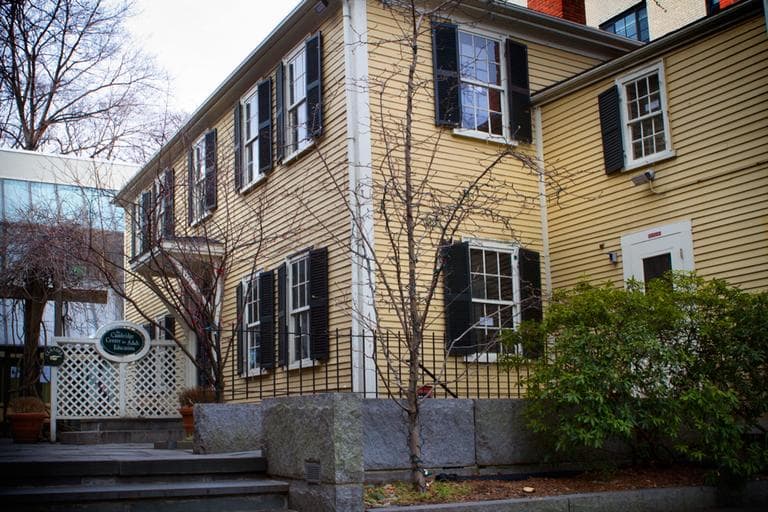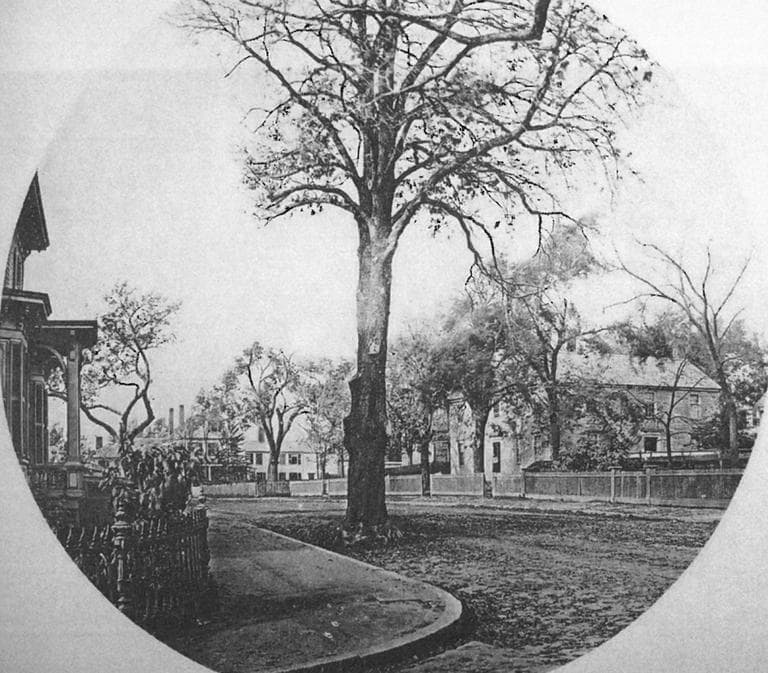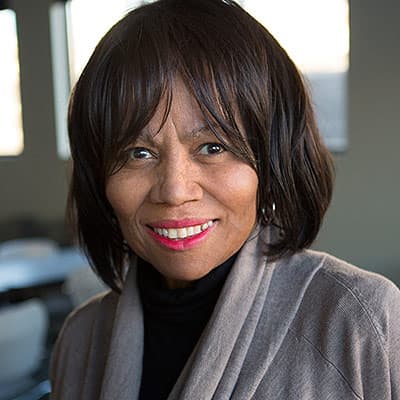Advertisement
Harvard Square's Blacksmith House Has Untold Connection To Runaway Slave
Resume
The story of black presence in America is as rich and about as old as America itself. From the lesser known names like the Bucks of America, who defended Boston during the American Revolution, to Mum Bett, the slave who sued her slave owner and won her freedom — plus back wages — in 1781. And it continues on to the better known names of former slaves and abolitionists like Lewis Hayden and Frederick Douglass.
Now add this name: Mary Walker. Walker was an enslaved woman who fled north to freedom and ended up owning one of the more famous houses in the Boston area. It’s one of the best known houses on Brattle Street in Cambridge, in the heart of Harvard Square, immortalized in poetry by Henry Wadsworth Longfellow, who lived not far away.
“Under the spreading chestnut tree the village smithy stood..." said Sheila Rice, quoting Longfellow. Rice teaches painting and drawing inside the 200-year-old house, which is now home to the Cambridge Center for Adult Education.
Rice had no idea it was once owned by a runaway slave.
"Well, I just know that Dexter Pratt was the village smithy in the Longfellow poem," she said.
"The next big period of time was when Mary Walker owned this house, and with her family lived here, more than one generation for 40 years," said Susan Hartnett, executive director of the Cambridge Center for Adult Education. She has only recently found out about the history of Walker and this house.
"She's an amazing woman," Hartnett said, "and yes, she escaped slavery and she tried to save her mother and her children. And she was an advocate, and she also was a small businesswoman.
"After the war this was a boarding house. I mean, you read that she was quite a woman, and then her children lived her with her as well."
We now know Walker's story thanks to Duke University history professor emeritus Sydney Nathans.

“Mary Walker was born into slavery in 1818," Nathans said. "She grew up on a plantation that was one of the largest and wealthiest plantations in North Carolina. Her mother was a seamstress and caretaker for the plantation mistress, and she grew into that role as a seamstress and caretaker for the daughters of the plantation.”
In 1848, Walker fled to freedom while accompanying a daughter of the plantation owner on a trip to Philadelphia.
There she got help from abolitionists, and two years later, after passage of the Fugitive Slave Act in 1850, she fled to Massachusetts. Walker lived in Milton before settling in Cambridge, where she earned wages as a caretaker and seamstress.
"This is a person who changed lives and helped lives in unseen ways," Nathans said.
Nathans first heard about Walker when he learned of the unpublished letters of a northern family, Susan and Peter Lesley, the couple who protected Walker in Philadelphia and later in Massachusetts.
The Lesley family's collection is a treasure trove of information about Walker's life and her long effort to be reunited with her children, who were still in slavery.
Nathans also found public records about Walker's purchase of the Pratt house.
"It was bought from the daughter of Dexter Pratt. She had married and moved away," Nathans said. "She and her husband had decided to sell the house in 1870.”
By then, Walker's mother had died. Her eldest son was gone — he'd escaped from the plantation. But she had been reunited with her remaining family: her two youngest children had come north five years earlier, after the end of the Civil War.
"I think she knew that a house would be an important thing to keep that family together and to keep them from being uprooted one more time," Nathans said.
She also did something to ensure the family would not be uprooted for generations to come.
"She wrote a will that provided that the house had to remain in the family’s hands until the youngest grandchild was 21," Nathans said. "It’s called the Rule of Perpetuity. You can’t will property forever to be in your family, but you can will it this way: it must remain in your family until the youngest is 21. So she was thinking ahead, she wrote that will on July 4, 1872."
Walker died later that year. The property remained in her family until 1912, when it was sold by that youngest grandchild.
It continued to be a refuge, though. After WWII, women who had fled the Nazis worked there, in a bakery called The Window Shop, famous for its Viennese pastries.
Since the 1970s, it’s been owned by the Cambridge Center for Adult Education.
"There are four rooms, two up and two down," Hartnett said. "Very humble, very sweet, I love the scale of this house. Very precious. The shape of the upstairs rooms in particular are absolutely the original. And the staircase is original — the thought that she walked these very stairs.”
And, Hartnett said, the discovery that Walker — a woman and a former slave — owned this very house, is "thrilling." Walker's story will be highlighted in anniversary celebrations starting this week, as the center prepares for a $1.5 million restoration of the house on Brattle Street.
This week is the kickoff of the first in a series of events titled "If These Walls Could Talk," with a talk by Sydney Nathans, author of the book, "To Free A Family: The Journey Of Mary Walker."
More:
This program aired on February 21, 2012.
